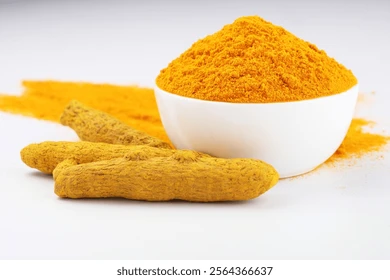- Published on
The Ultimate Guide to Herbal Remedies for Common Ailments
- Authors

- Name
- Health & Wellness Team
Herbal remedies have been used for thousands of years across cultures as a natural, holistic approach to health. In today's fast-paced world, many people are rediscovering the power of herbs to treat common ailments safely, gently, and effectively. This guide covers the top herbal remedies for everyday health problems, explaining their benefits, preparation methods, and precautions.
Why Choose Herbal Remedies?
Herbs offer several advantages:
- Fewer side effects than synthetic drugs
- Cost-effective and accessible
- Support the body’s natural healing processes
- Often have multiple health benefits in one plant
However, it’s important to understand proper dosages and possible interactions.
1. Tulsi (Holy Basil) for Immunity and Cold Relief
Tulsi is revered in Ayurveda for its immune-boosting and anti-inflammatory properties.
- Uses: Helps fight colds, flu, coughs, and respiratory issues.
- How to use: Prepare a tea by boiling fresh or dried tulsi leaves in water for 5-10 minutes. Drink 1-2 cups daily during illness.

2. Ginger for Digestion and Nausea
Ginger root is a powerful anti-inflammatory and aids digestion.
- Uses: Relieves nausea, indigestion, gas, and motion sickness.
- How to use: Fresh ginger tea or ginger slices in hot water; also used in cooking.
3. Peppermint for Headaches and Digestive Health
Peppermint soothes muscles and calms the digestive tract.
- Uses: Eases tension headaches, bloating, and indigestion.
- How to use: Drink peppermint tea or apply diluted peppermint oil to the temples.
4. Chamomile for Sleep and Relaxation
Chamomile flowers have calming and anti-anxiety effects.
- Uses: Helps with insomnia, anxiety, and mild digestive upset.
- How to use: Brew chamomile tea and drink before bedtime.
5. Turmeric for Inflammation and Joint Health
Turmeric contains curcumin, a potent antioxidant and anti-inflammatory agent.
- Uses: Reduces arthritis pain, supports liver health, and boosts immunity.
- How to use: Use turmeric powder in cooking or drink turmeric milk (golden milk).
6. Aloe Vera for Skin and Digestive Health
Aloe vera gel is healing and soothing.
- Uses: Treats burns, cuts, and skin irritation; aids digestion when consumed internally.
- How to use: Apply gel directly to skin; drink aloe juice in moderation.
7. Echinacea for Immune Support
Echinacea is popular in Western herbal medicine for preventing colds.
- Uses: Boosts immunity, reduces duration of colds and flu.
- How to use: Take as tea, tincture, or capsules during early symptoms.
8. Licorice Root for Respiratory Health
Licorice soothes the throat and clears mucus.
- Uses: Treats coughs, bronchitis, and sore throats.
- How to use: Prepare tea from dried licorice root; avoid long-term use if you have high blood pressure.
9. Lavender for Anxiety and Headaches
Lavender oil calms the nervous system and relieves headaches.
- Uses: Reduces stress, improves sleep, eases migraines.
- How to use: Use lavender oil in aromatherapy or diluted topically.
10. Cinnamon for Blood Sugar and Digestion
Cinnamon improves insulin sensitivity and aids digestion.
- Uses: Helps regulate blood sugar, reduces gas and cramps.
- How to use: Sprinkle cinnamon powder on food or drink as tea.
Safety Tips When Using Herbal Remedies
- Consult a healthcare provider before starting any herbal treatment.
- Avoid mixing herbs with prescription medications without guidance.
- Use herbs from reputable sources to avoid contamination.
- Start with small doses to test tolerance.
Frequently Asked Questions
| Question | Answer |
|---|---|
| Can herbal remedies replace modern medicine? | They can complement but should not replace prescribed treatment. |
| Are herbal remedies safe during pregnancy? | Some herbs can be harmful; always consult a doctor. |
| How long does it take to see effects? | Effects vary; some herbs work immediately, others need weeks. |
Conclusion
Herbal remedies provide a natural way to address many common health concerns with minimal side effects. Incorporating these plants into your daily routine can boost immunity, ease discomfort, and improve overall wellness. Always use herbs responsibly and consult professionals when needed to maximize benefits safely.











Comments